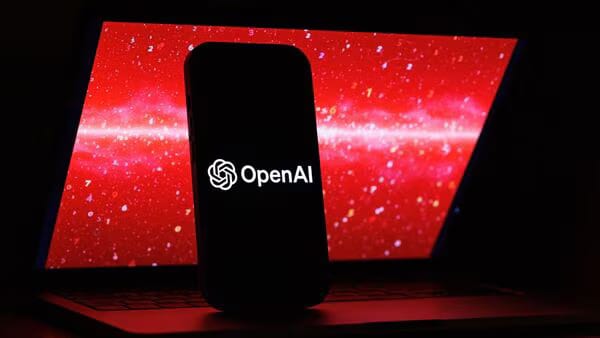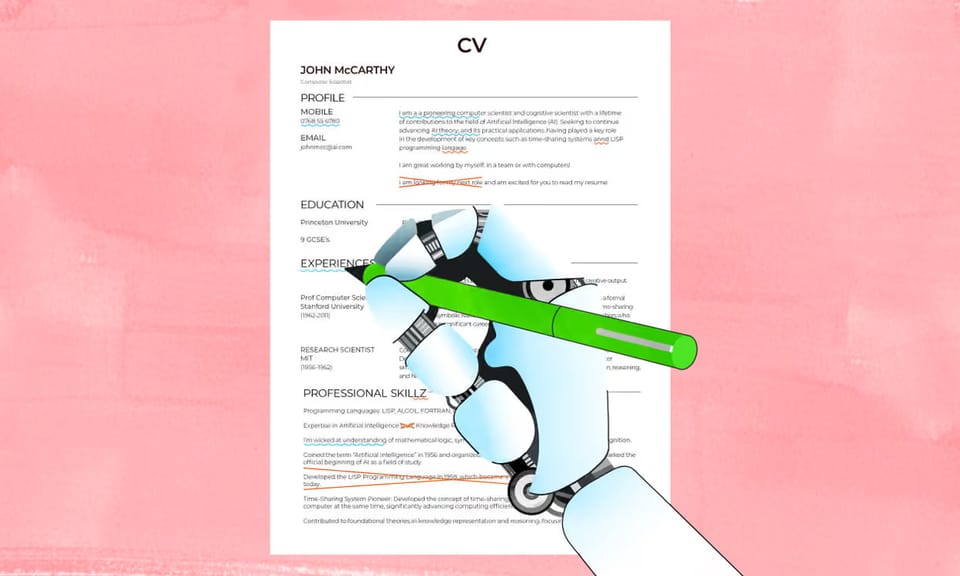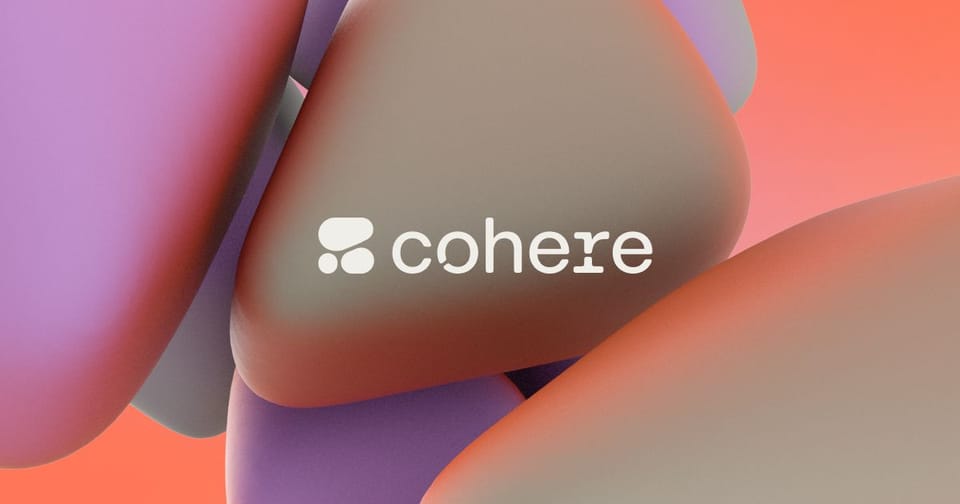Cocktail-Making Robots
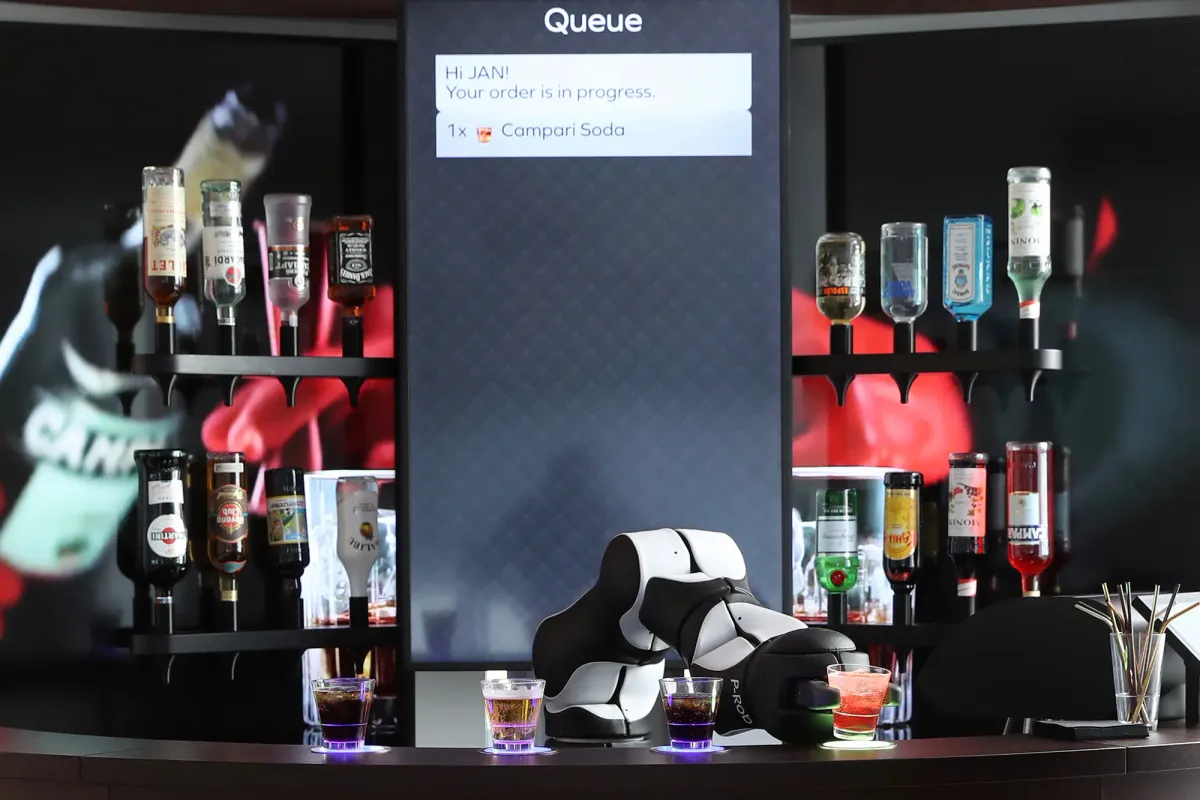

Elon Musk is suing OpenAI over "saving humanity" (while also wanting to control it), Nvidia just made AI even faster (sorry, humans), and Sony’s AI Aloy might be coming for voice actors' jobs.
Oh, and if that wasn’t enough, AI is now shaking cocktails and fixing subways.
Buckle up because AI isn’t just reshaping the future; it’s making it a wild ride.
Let’s dive in!
Business & Finance
Musk vs. OpenAI
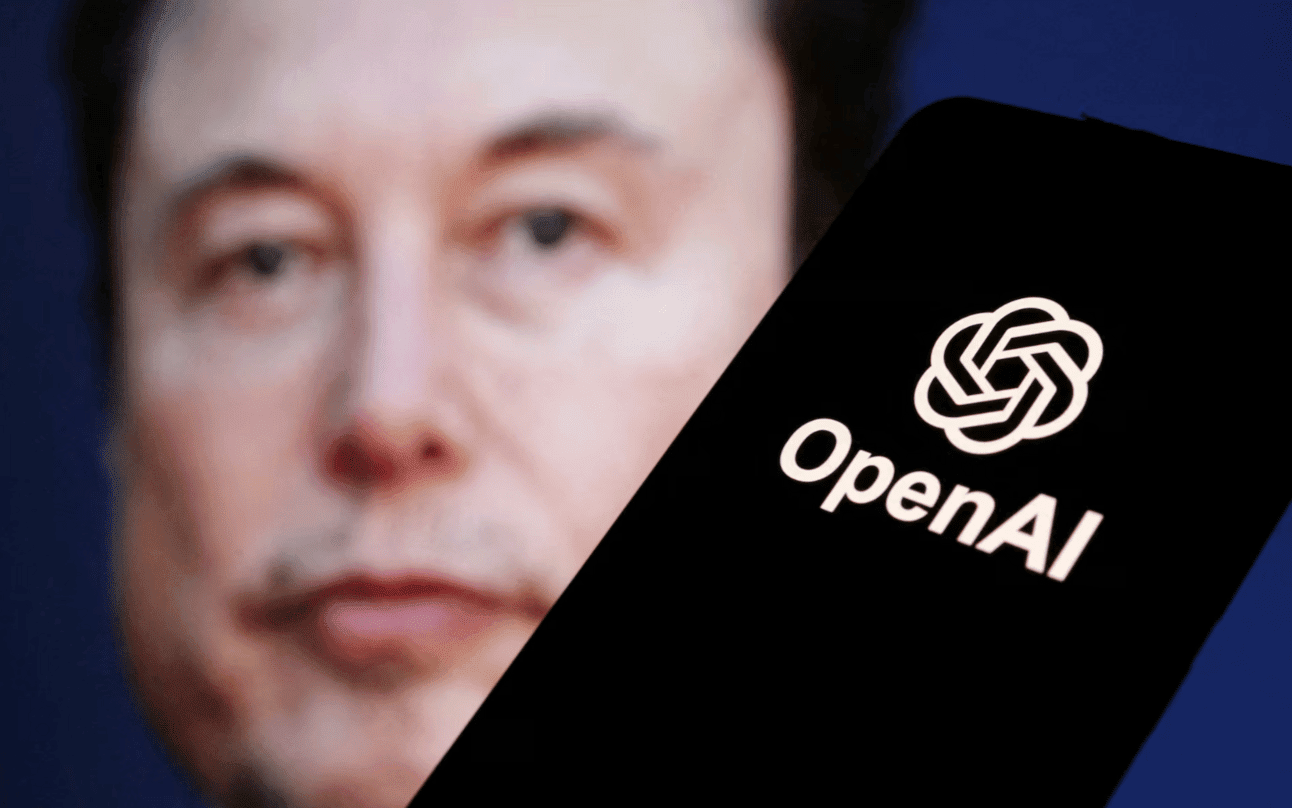
Elon Musk and OpenAI are fast-tracking their legal battle over OpenAI’s shift to a for-profit model. Musk, a co-founder turned critic, claims OpenAI abandoned its mission to serve humanity over profits. The trial, set for autumn, could shake up the future of AI ethics.
This case spotlights the growing tension between AI innovation and corporate greed. As AI firms chase big money, staying true to ethical goals gets tricky. The verdict could reshape how AI companies balance profit and purpose.
For now, enjoy the tech-world soap opera, where billionaires argue over saving humanity while also trying to own the future. Stay tuned because AI isn’t just about machines; it’s packed with real human drama!
Tech
Nvidia Drops Bombshell at GTC 2025

Last week, Nvidia’s GTC 2025 shook the AI world as CEO Jensen Huang unveiled the Blackwell Ultra chip; faster, smarter, and ready to dominate. He also teased the Rubin GPU for 2026, making tech giants like Amazon and Google scramble to keep up. Analysts predict Nvidia’s AI dominance could double its data center revenue to $300B by 2029.
But not everyone is cheering; big players like Google and Amazon are building their own AI chips, and Chinese startup DeepSeek is claiming superior efficiency. Despite the competition, Nvidia’s stock remains strong, even after a 23% dip from last year. The battle for AI chip supremacy is heating up, and it’s going to be a wild ride.
Why does this matter? If Nvidia wins, AI gets faster and cheaper for everyone, from Fortune 500s to indie devs. If competitors catch up, we get more innovation and lower costs. Either way, AI's future just got a serious power boost.
Entertainment
Sony’s AI Aloy: Game-Changer or Job-Taker?
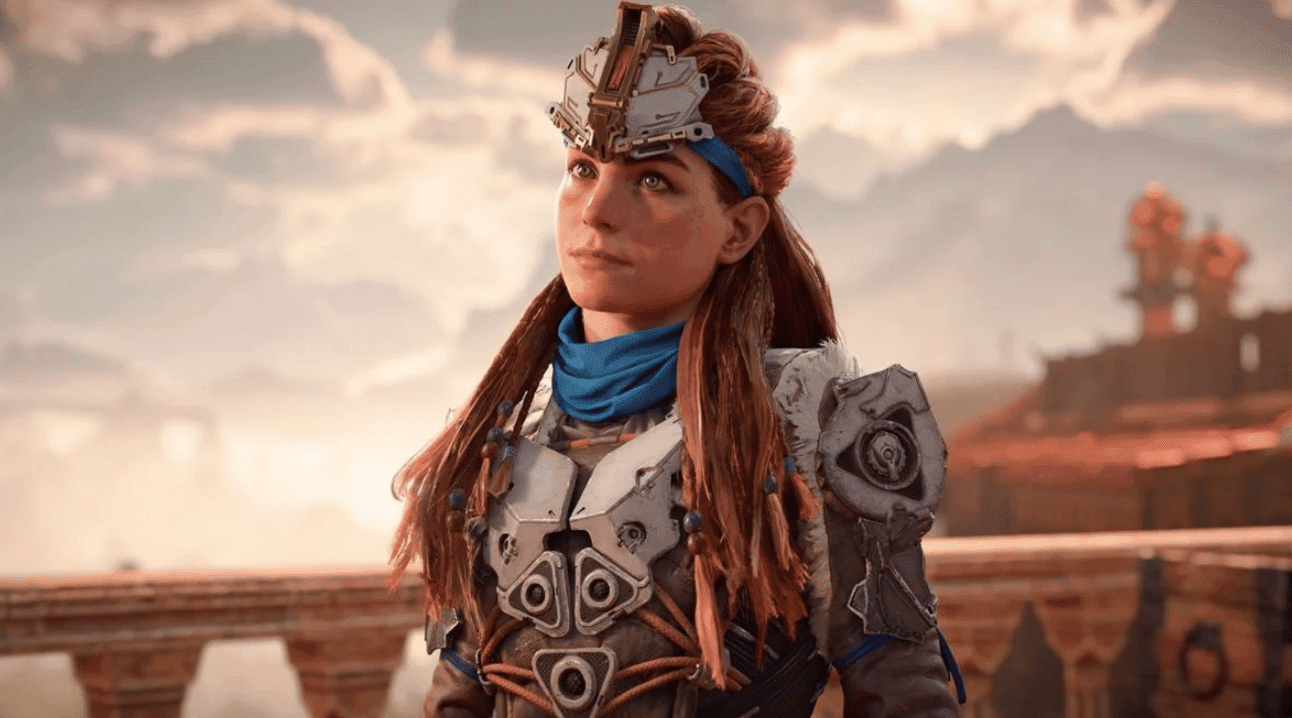
Sony just unveiled an AI-powered version of Aloy from Horizon Forbidden West, sparking both excitement and outrage. This AI-driven character, powered by OpenAI’s GPT-4, can chat dynamically with players, making gameplay more immersive. But with AI now voicing major characters, voice actors are wondering if they’re being patched out of existence.
Ashly Burch, Aloy’s original voice actor, is not amused. She and others in the industry warn that AI threatens creative jobs and are pushing for fair compensation and consent. With Hollywood still grappling with AI concerns, gaming may be the next battleground.
AI making game characters smarter? Cool. AI taking jobs? Not so much. As tech pushes forward, the real question is: Will our favorite characters stay human, or will AI steal the spotlight?
Beauty
Ulta’s Secret Weapon for Keeping Stores Alive
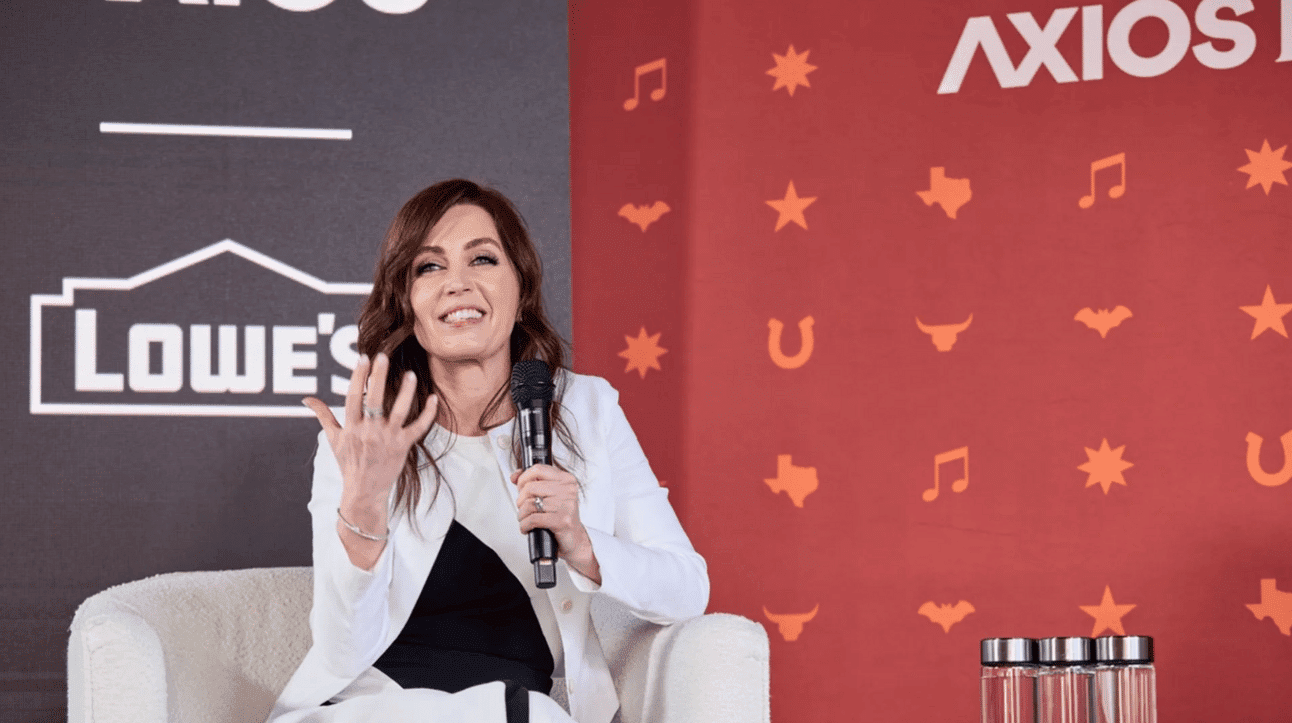
Ulta Beauty’s CMO, Kelly Mahoney, just spilled the AI tea at SXSW: AI has been quietly supercharging their stores since 2018. It’s not just about online shopping; AI helps personalize in-store experiences so beauty lovers keep walking through the doors instead of clicking “Add to Cart” elsewhere. Turns out, AI isn’t here to kill brick-and-mortar stores; it’s here to make them irresistible.
How? AI studies shopping habits to send you the perfect product recommendations (yes, your skincare addiction is being watched). By crunching data, Ulta makes sure customers get deals and products they actually want, no more random shampoo discounts when you’re all about serums. Smart, right?
For anyone in beauty or business, this is a wake-up call: AI isn’t the future; it’s already running the show. Whether you’re a CEO, a startup founder, or just someone trying to get the best deal on foundation, AI is shaping how you shop. Adapt now, or risk being left behind, just like that expired lipstick in your drawer.
Fashion
AI Takes Over Paris Fashion Week, And It’s Fabulous (Or Frightening?)

AI stormed Paris Fashion Week, with brands like Coperni and Viktor & Rolf blending tech and couture in jaw-dropping ways. From AI-generated designs to virtual fittings, machines are now part of the creative process—whether designers like it or not.
This isn't just about flashy tech; AI is changing how fashion is made, marketed, and even modeled. Designers get new creative tools, but traditional craftsmanship faces an identity crisis. Love it or hate it, AI is now stitching itself into the industry.
Why does it matter? AI could make fashion faster, cheaper, and more inclusive—or strip it of its soul. CEOs smell efficiency, artists fear replacement, and consumers? Well, get ready for AI-styled outfits.
Health
AI Nurses: A Revolution or a Risky Shortcut?

Hospitals in the U.S. are rolling out AI nurses to tackle staffing shortages, with companies like Hippocratic AI leading the charge. While these bots offer round-the-clock monitoring and cost savings, nursing unions argue they lack human intuition and could flood hospitals with false alarms. Is this innovation or just a high-tech way to cut corners?
Supporters say AI enhances care by reducing workload and improving response times, but critics warn of an over-reliance on automation. Can AI really handle a medical emergency, or will patients end up yelling “Help!” at a screen? The debate rages on, with hospitals weighing efficiency against the irreplaceable human touch.
AI is here to stay, but should it be your next nurse? Hospitals must balance tech with empathy because no chatbot will ever know when you just need a warm blanket and a reassuring smile.
Food & Beverage
Scorpion Shakes Up the Food & Beverage World
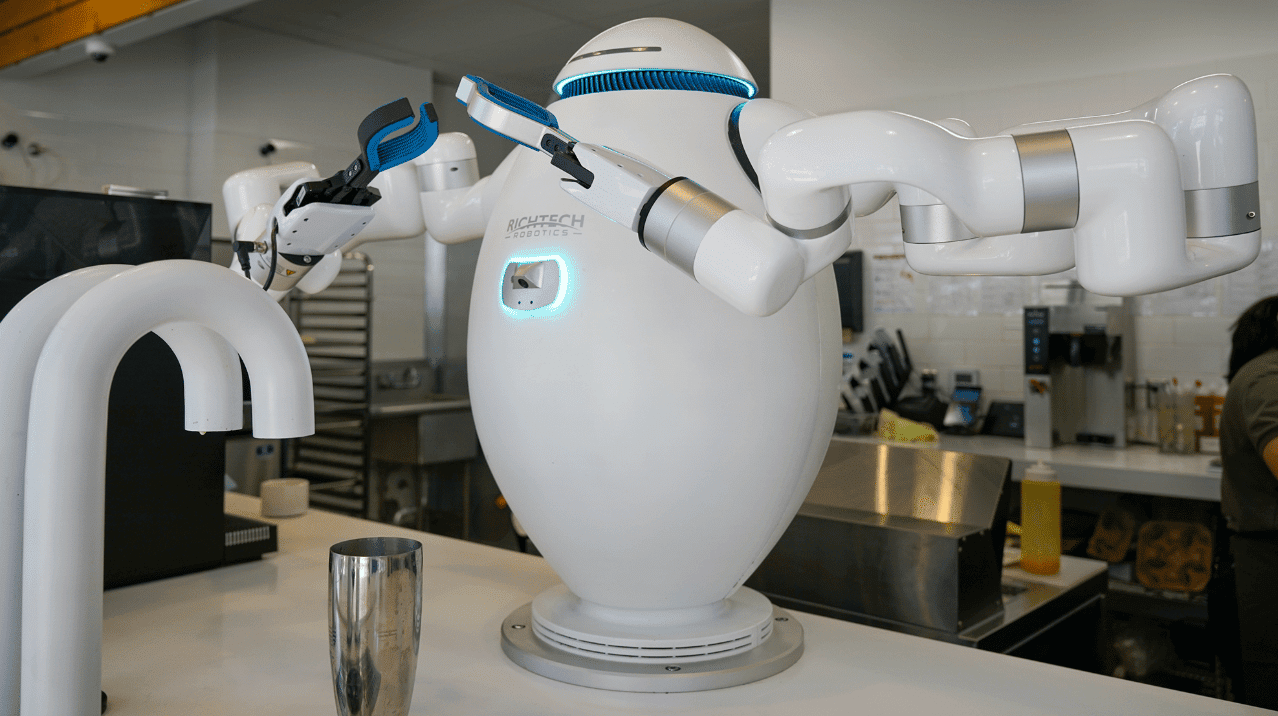
Richtech Robotics just introduced "Scorpion," an AI-powered robotic bartender, at ProWein 2025, sparking excitement and a bit of panic. This futuristic mixologist serves cocktails, recommends food pairings, and even interacts with customers using NVIDIA AI. Is this the future of drinking, or just a high-tech party trick
While Scorpion impresses with its skills, it raises concerns about automation replacing human bartenders. The debate is heating up: will AI-enhanced service improve efficiency, or are we saying goodbye to the charm of human bartenders? Either way, your next cocktail could come with a side of existential crisis.
For CEOs, tech lovers, and casual drinkers alike, this is a glimpse into AI’s growing role in hospitality. Scorpion's launch at a major event signals big changes ahead. Whether you're toasting to innovation or mourning tradition, one thing’s clear: AI is stirring up the industry.
Sports
The Sixers’ Big Blunder

The Philadelphia 76ers’ GM, Daryl Morey, just blamed AI for their disastrous 22-43 season. Speaking at the MIT Sloan Sports Analytics Conference, he admitted they leaned too much on AI for player decisions and it backfired. Turns out, numbers alone can’t predict if a player will actually win games.
This sparked debate: Should AI call the shots in sports? Sure, it crunches data fast, but it can’t see chemistry, hustle, or heart. Maybe it’s time to mix AI with old-school human instincts.
The lesson? AI is a tool, not a coach. Great teams blend tech with human smarts—because no algorithm can predict if a player actually shows up in the fourth quarter.
Gaming
Microsoft’s AI Copilot in Gaming: Genius or Game Ruiner?

Microsoft just dropped Copilot for Gaming, an AI assistant that helps players with tips, crafting, and even strategy guides. Think of it as Clippy but for Xbox—suggesting what to build in Minecraft or how to win in Age of Empires IV. Sounds helpful, but also a little… creepy?
While AI coaching sounds cool, some gamers worry about privacy and losing real social interactions. Do we really need AI telling us our Overwatch 2 aim is trash? Plus, how Copilot gathers game advice is a mystery, could it be scraping gaming forums?
For CEOs and casual players alike, this AI shift is huge. It could change how we learn, play, and interact in gaming. Whether Copilot is a genius coach or an annoying backseat gamer… well, we’ll find out soon.
Travel & Transportation
NYC’s Subway Gets a Google-Powered Tune-Up

New York’s MTA just strapped Google Pixel phones to subway cars: yes, really, to track vibrations and predict maintenance issues using AI. The system, TrackInspect, has flagged 90% of track defects, verified by human inspectors (so, no robot takeovers yet). The goal? Fewer delays, because New Yorkers have places to be.
Since September, the MTA collected 335 million sensor readings over 1,200 hours, turning raw data into action. This AI-driven system could save time, money, and a few commuter meltdowns. If successful, other cities might follow because who doesn’t want a subway that actually runs on time?
While this sounds futuristic, it also raises concerns. Will AI make flying less stressful or just ensure we’re all tracked like lost luggage? Either way, Delta’s move signals a future where AI manages your entire trip, leaving you free to enjoy or stress over other things.

